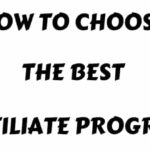Covid Vaccine for Pregnant and Breastfeeding Moms?
In India, from 1st May 2021, the 3rd-phase Covid vaccination is to commence, Covid-19 vaccine is made to open for the age group of 18 years to 45 years. 2nd-phase vaccination in India started on March 1, 2021, for all Indians above the age of 60 and Indians between the age of 45 and 59 with comorbidities were vaccinated, Covishield and Covaxin
In India, 2 vaccines granted emergency use authorization by the Central Drugs Standard Control Organization (CDSCO) were Covishield, AstraZeneca’s vaccine manufactured by Serum Institute of India and Covaxin, manufactured by Bharat Biotech Limited
People were searching for information on the internet on queries, does the covid vaccine affects future pregnancy? and “Should Pregnant and Breastfeeding mothers can get covid-19 vaccination”. Is it safe to get a covid vaccine while breastfeeding?
Is covid 19 vaccine safe for breastfeeding moms: The government of India issued guidelines in 2nd Phase Vaccination and published contraindications for a vaccine for Pregnancy and Lactation Mothers. According to mohfw.gov.in, “No COVID-19 clinical vaccine trial has yet included pregnant or breastfeeding mothers. Women who are breastfeeding or not aware of their pregnancy thus should not currently get the COVID-19 vaccine “
But there is some good news, Breastfeeding mothers who are vaccinated with COVID-19 will transmit protective antibodies to their babies through breast milk for at least 80 days after the injection, according to recent research from the Washington University School of Medicine in St. Louis.
first author Jeannie Kelly, MD, assistant professor of obstetrics and gynaecology said as “Our analysis found a significant increase in antibodies against the COVID-19 virus in breast milk two weeks after the first injection, and this response was sustained for the period of our nearly three-month study. The antibodies levels were still strong at the end of our research, indicating that the protection may last much longer.”
The report, which included 5 mothers who offered frozen breast milk samples after receiving the two-dose Pfizer-BioNTech coronavirus vaccine, provides some of the first peer-reviewed evidence that breastfeeding confers a long-lasting immune response in the nursing babies and toddlers of vaccinated mothers.
“There is too much vaccine disinformation out there right now – very frightening, deceptive posts on social media intended to confuse moms – that we feel like we wanted to look at the science,” Kelly said. “We recognise that these antibodies cover the mouths of babies to protect them from disease as they drink breast milk. The vaccine not only protects the mother, but it also protects the baby for months, as she breastfeeds.”
The research, published in the American Journal of Obstetrics and Gynecology on March 30th, monitored baseline levels of COVID-19 antibodies for mother vaccines before their first and 80 days a week.
Although previous research has shown that COVID-19 vaccines produce antibodies that are passed on to breastfeeding babies via breast milk, this is thought to be the first study to monitor precise amounts of these antibodies in breast milk over a prolonged period of time.
The women’s babies in the study ranged in age from one month to 24 months. Researchers measured the levels of immunoglobulins IgA and IgG in breast milk to assess the immune response. Immunoglobulins are antibodies used by the immune system to combat diseases in infants.
The findings indicate that breast milk produces elevated amounts of IgA and IgG antibodies shortly after the first dose of the vaccine, with all antibodies exceeding immune-significant levels in all participants within 14 to 20 days of the first vaccination.
“Our research is constrained by the small number of participants, but the results include positive news about the possible immune contribution of breast-feeding babies following vaccination,” said Misty Well, MD, an assistant professor of paediatrics at Washington University. “Our study is the first to demonstrate that COVID-19 antibodies remain in breast milk for months after the mother is vaccinated.”
The results from Washington University are consistent with previous research on maternal vaccination, which has shown elevated levels of antibodies in breast milk for up to six months after vaccination for influenza and whooping cough.
Although further study on maternal COVID-19 vaccination is required to determine the duration of antibody formation in breast milk and the impact on baby infection rates, recent research confirms that the COVID-19 vaccine has real benefits for protecting both mother and child.
“We do know that COVID-19 infection is more acute during breastfeeding, and the biggest advantage of vaccine is to prevent moms when they get seriously ill, which can also be harmful to their foetus,” Kelly said. “Nearly 70,000 pregnant women have now been immunised against COVID 19 with no proof of harm.”
“We are now seeing a cascade of new evidence that show maternal vaccinations can also help protect babies- both through antibody transmission through the placenta during birth and breast milk during lactation,” Kelly added. “We didn’t have this awareness a couple of months ago, and it’s also helped us to counsel our patients who are thinking about having the vaccine. I’m telling pregnant and breastfeeding mothers that they should get vaccinated as soon as possible.”
Note: Always consult your doctor before any medications
Content Source: Washington University School of Medicine
Look for government guidelines on Covid vaccine for Pregnant and Breastfeeding Moms, Updates here…..
Learn More
Link: Newspaper PDF

